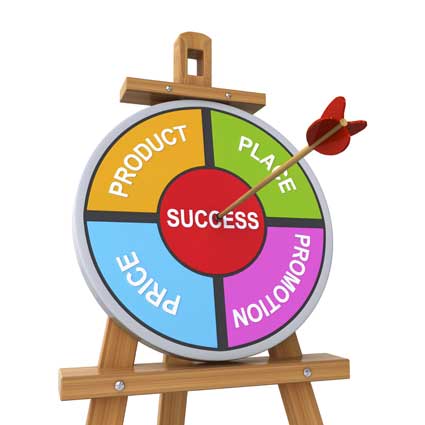Job Interview etiquette is one of the most important business etiquette forms. You don't need it all the time, but when you do, you do.
Job interviewing is centered on preparation and execution. An interview is your opportunity to sell the product you are most familiar with in the world (yourself). No one knows more about you, than you do. You are the foremost expert on your skills, abilities, and competencies; so, all you must do is smoothly execute your sales pitch.
Let us focus on preparation tips that will help you excel and nail the interview process.
First, remember the interview process can be equally viewed on both sides of the table -- as the interviewer, and as the interviewee. It is the first time you have both met; the interviewer is looking for the ideal image for their company -- someone who fits their company's image. They are most likely looking for someone who presents with a polished, professional image, well poised, and who presents with a sense of ease and comfort. They will try to determine how you fit the culture and strategic alignment of the organization, and will ask questions to determine your integrity, commitment, and work ethic.
There are concerns on both ends; the interviewer is concerned about landing the ideal employee to fill an opening, and the interviewee is concerned about delivering the best possible interview.
Your basic outline for a business interview should look like this:
-
Dress professionally, wearing business professional dress.
-
Maintain eye contact.
-
Understand the time frame allotted for the interview, and make a mental plan of how you approach each question, based on the allotted time frame.
-
Address each question fully, and ask for clarification if you do not understand.
-
Practice performance-based interview questions prior to the interview.
-
Practice in a mirror, so you have an understanding of what the interviewer sees.
-
Know the answers to commonly asked interview questions; these can be found on the Internet.
-
Be prepared to explain why you stand out from the other candidates.
-
Be prepared to answer questions on your ethics.
-
Be prepared to discuss your knowledge of the company at which you are applying.
Be sure to have researched the company details. What do you know about a company that others do not? Are you giving all of the canned answers they expect, so they are checking the boxes, but you are not standing out? Why are you the best candidate?
Research the company on the Internet and make note, not only of the company's position in the industry, but also of the market as a whole, and what the competition is doing. What do you bring to the company that will help give them the edge against the competition? Your contacts? Your networking abilities? Your industry experience? If the company has media materials or blogs, review those, too, for details.
In preparing for the interview, there are a few bits of advice for things you should say or not say during an interview.
If you were asked about previous employers, be very cautious not to be critical or negative about a former employer. Always present previous employers in a positive light, even if there were difficult situations. Even if the interviewer appears interested in hearing the details, this also provides them an indication of how trustworthy you may be, or your ability to hold information in confidence. It gives them an idea of your personality style and level of professionalism. Many times the interviewers in similar business industries may be keenly aware of the details of other companies.
Provide open and honest candor during the interview and avoid being too chatty and divulging personal information. Never share too many personal details during an interview, as it may cause the interviewer to doubt your judgment or discretion, and may make them feel uncomfortable. Focus your energy and discussion for the interview on your work history, experience, and qualifications.
Make sure your interview is a two-way conversation. You should ask thoughtful questions about the company. It shows your interest in the company, and shows the interviewer that you're really interested in the position.
Use tact during the interview; never ask when you can start, salary questions, or benefit questions, until the interviewer or company shows a serious interest in hiring you.
Avoid arrogance during the interview process. This is a common pitfall of the interviewers when they become overly confident in the interview. Although you may be doing well in the interview process initially, your over-confidence may eliminate you from further consideration as the interview progresses. Share your accomplishments, but never be boastful. Always remain confident, but humble.
What you may be asked, and what you should not be asked
Interviewers will have a standardized set of questions. They may begin with asking your name, marital status, citizenship, disabilities that may hinder your ability to perform the essential functions of the job, and what languages you speak. They may also ask about your education, experience, and arrest record.
They will ask questions related to your previous jobs, such as, "What did you like most about your job?"
They will ask questions related to your motivation, such as, "Why did you select this type of work?"
They will ask questions related to your stability, such as, "What is your career objective, or why did you decide to work here?"
They will ask questions related to your ability to work under the direction of others such as "Well do you work as part of a team"?
They will ask questions related to your flexibility and resourcefulness, such as, "Tell me about a time when you had a difficult problem you could not solve."
There are thousands of basic interview questions the interviewer may ask; you should have a preset plan for addressing common questions about your qualifications, skills, abilities, education, experiences, both good and bad, and usually at least one customer service-based question.
Dress for the interview
You should wear business professional dress. The conservative look is best, and you should mirror the culture of the company to which you are interviewing. A dark suit, with a button down shirt and matching socks is appropriate. Dress as though you already have the job.
Prior to arrival to the interview
-
Make sure you have completed any necessary paperwork appropriate for your interview.
-
Confirm your date and time for the appointment.
-
Make sure you have a map or GPS System.
-
Make sure you have the correct address.
-
Make sure you have a phone number, in case you are lost.
-
Bring additional copies of your resume and business cards. Make sure that you tailor your resume to fit each particular job. You want to convey the appearance that this job is the most important job for you -- and this job, specifically.
-
Make sure you have brought any additional materials you may need, such as transcripts, performance evaluations, or reference lists.
-
Be sure to take a note pad or professional portfolio.
-
Make sure your cell phone is off, on silent, or on vibrate.
-
Make sure your clothing and hair look appropriate. Take a quick look in the mirror.
-
Do not forget about personal hygiene. Be cautious of using cologne or perfumes, and use a breath mint, if necessary.
When you arrive for the interview
-
Always arrive at least 15 minutes ahead of the scheduled interview. Anticipate getting lost, being stuck in traffic, or having difficulty finding parking. Your timeliness for the interview is an indication of your future timeliness, for your interviewer. You also need to show you value their time. On the converse, do not arrive too early; this may create an uncomfortable situation. You may wait in your car, or in another building, if necessary.
-
Make sure the receptionist knows you have arrived.
-
In interviews, just as in normal business introductions, you will make your first impression within the first 30 seconds. Be sure those first 30 seconds matter with each individual you meet -- from the receptionist, to the security guard, to any administrative employees, to the actual interviewer. They may ask them later what their experience was when they met you.
-
Be a good conversationalist, but be direct and to the point with questions. If you are nervous, do not chat unnecessarily or ramble on with interview questions.
-
Even if you feel comfortable with the interviewer or interview panel, be respectful and do not assume that you have the job. Maintain a professional distance until your interview is completed, and you hear further word.
-
Remember, most people form an impression of you within the first 30 seconds.
-
Always stand for introductions.
-
Try to relax and be yourself, as this is an opportunity for the employer to see what it would be like to work with you. Always show a positive attitude.
-
Always look everyone in the eye, including the interviewer.
-
Extend a firm handshake.
-
Make sure you smile; this is a very important part of the interview process -- not a creepy, continual smile, but a calculated smile between questions to show your interest.
-
Make sure you sit up straight with a slight lean forward.
-
Give your name and some other brief information identifying yourself.
-
Do your best to memorize the names of the interviewer or interview panel.
-
Always make sure you know some key information about the company or position. Research common problems, so that you can offer a statement to the interviewer of what you can do to help resolve a common problem.
-
Avoid nervous fidgeting. Employers interpret your attitude and interest in the job through your body language, just as they do from your smile and your words.
-
While you want to avoid fidgeting, you also want to be aware of your body language, by presenting an interested and thoughtful demeanor. At the same time, you want to be aware of the interviewers body language. If they appear bored or disinterested, do what you can to infuse interest into the interview.
-
Ask if there are any questions they would like additional clarity on.
-
Give specific, concise answers to the questions.
-
Do not speak too quickly or interrupt the interviewer.
-
Conclude the interview with a smile and a firm handshake.
-
Always end the interview on a positive note.
-
Have your exit strategy planned out in your head. When you leave, remind them again of your interest in the position, make eye contact, shake hands with all of the people in the room, and try to use the name of each individual you shake hands with, as you thank them for the interview.
After the interview
-
Send a handwritten thank-you note immediately after the interview to the interviewers.
-
You may contact the human resources department, or the interviewer, for a status update on the hiring process once the allotted period of time has passed.
-
You may send the interviewers a quick email, after you have sent a handwritten note, just as a reminder -- and to establish contact.
-
Follow up as appropriate.
-
Make a note of the interview questions asked and reflect on them for future interviews.
-
Celebrate if you got the job, and press forward if you did not.
Additional tips after the interview, or if you get an offer
-
Never cancel an interview without a significant reason.
-
Never accept a job offer, then turn it down immediately after accepting it. This may burn bridges for future opportunities.
-
Never settle and accept the first offer you receive.
-
Never, repeat, never go to an interview wearing a suit with a tag still on it, because you intended to return it.
Summary reminders and takeaways
Approach each interview with confidence and the knowledge that you have researched the company and practiced performance-based interview questions. Remember, there are concerns on both ends; the interviewer is concerned about landing the ideal employee to fill an opening, and the interviewee is concerned about delivering the best possible interview. During the interview, dress professionally, wearing business professional dress. Maintain eye contact. Make a mental plan on how you approach each question based on the allotted time frame. Address each question fully, and ask for clarification if you do not understand.

























